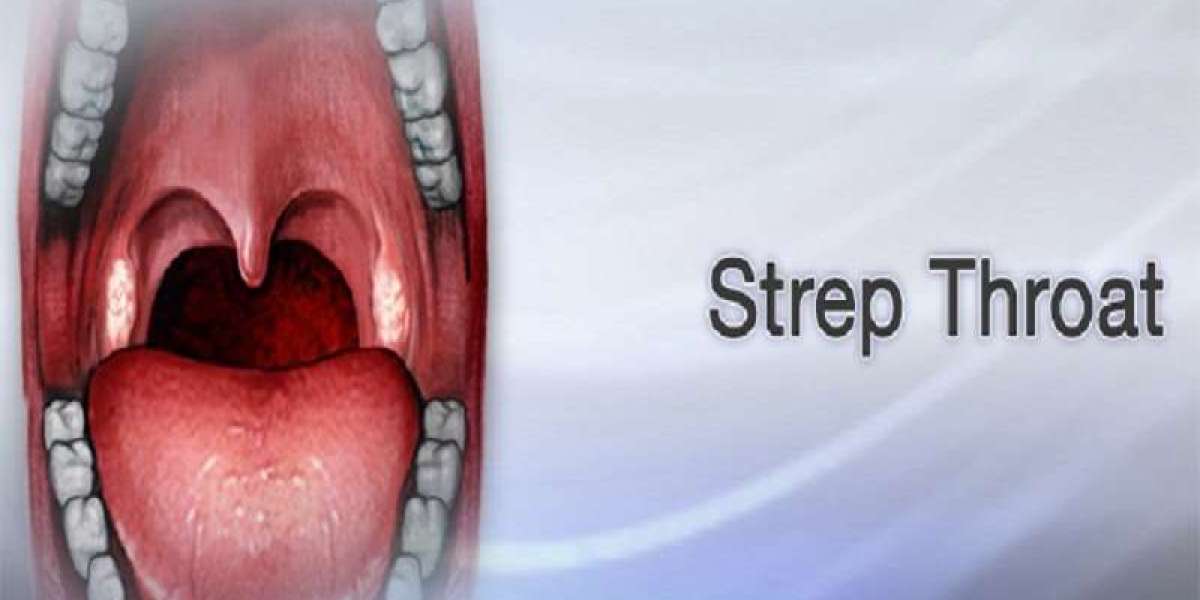Introduction:
Strep throat is a common bacterial infection that primarily affects the throat and tonsils. Tonsils, small masses of tissue located at the back of the throat, play a crucial role in the body's immune system. However, in some cases, individuals have undergone a tonsillectomy, the surgical removal of the tonsils. While this procedure is often performed to alleviate recurring infections or other health issues, it can have an unexpected impact when strep throat strikes. This article explores the incredible impact of strep throat on individuals who have had their tonsils removed, highlighting the challenges they may face and the strategies available for managing the condition effectively.
Body:
1. Importance of Tonsils in the Immune System:
Tonsils serve as a crucial component of the body's immune system, acting as a first line of defense against harmful pathogens. They produce white blood cells and antibodies that help fight off infections, particularly those affecting the throat and respiratory system. Tonsils trap bacteria and viruses, preventing them from entering the body further. Therefore, when someone with intact tonsils contracts strep throat, their immune response can be swift and effective.
2. Challenges Faced by Individuals without Tonsils:
a) Increased susceptibility: The absence of tonsils leaves individuals vulnerable to various infections, including strep throat. Without the protective barrier and immune response provided by tonsils, the bacteria causing strep throat can easily enter the body and cause infection.
b) Frequent infections: Strep throat tends to recur in some individuals, even after a tonsillectomy. This recurrence can be attributed to the fact that the tonsils are not the only line of defense against strep bacteria. Other immune system components, such as the adenoids, can still become infected and harbor the bacteria.
c) Delayed diagnosis: Strep throat without tonsils can be challenging to diagnose accurately. The absence of the typical swollen tonsils and visible signs of infection can lead to a delay in identifying strep throat, as symptoms may be less pronounced or mistaken for other conditions. This delay can prolong discomfort and potentially increase the risk of complications.
d) Increased severity and complications: Strep throat in individuals without tonsils can be more severe and lead to complications. Since the primary defense mechanism of the throat is compromised, the bacteria can spread more easily to other areas, such as the sinuses, middle ear, or lungs, causing secondary infections. Moreover, the absence of tonsils may affect the body's ability to clear the infection efficiently, potentially leading to prolonged illness.
3. Managing Strep Throat without Tonsils:
a) Early recognition: It is vital for individuals without tonsils to be aware of the symptoms of strep throat and seek medical attention promptly. Common symptoms include a sore throat, difficulty swallowing, fever, swollen lymph nodes, and white patches on the throat. Seeking medical assistance early can help minimize complications and facilitate faster recovery.
b) Thorough examination: Since the absence of tonsils may affect the visual examination of the throat, healthcare providers should conduct a comprehensive evaluation. They may use throat swabs for laboratory testing, which can confirm the presence of strep bacteria and guide appropriate treatment.
c) Antibiotic therapy: Strep throat caused by bacteria requires antibiotic treatment to eliminate the infection. Individuals without tonsils may need a longer course of antibiotics or a different antibiotic regimen to ensure complete eradication of the bacteria. It is crucial to follow the prescribed treatment plan and complete the full course of antibiotics to prevent recurrence or antibiotic resistance.
d) Pain relief: Sore throat and discomfort are common symptoms of strep throat. Over-the-counter pain relievers, such as acetaminophen or ibuprofen, can help alleviate these symptoms. Gargling with warm saltwater or using throat lozenges may also provide temporary relief.
e) Hydration and rest: Adequate hydration and rest are essential for recovery from strep throat. Drinking plenty of fluids and getting sufficient rest can support the body's immune system and expedite healing.
Conclusion:
Strep throat can have a significant impact on individuals who have undergone a tonsillectomy. The absence of tonsils leaves them more vulnerable to infections, including strep throat, and increases the risk of complications. Recognizing the symptoms early, seeking prompt medical attention, and following the prescribed treatment plan are crucial for managing strep throat effectively. While the absence of tonsils may present challenges, individuals without tonsils can still recover from strep throat with appropriate care and support. It is important to consult with healthcare professionals for personalized guidance and to ensure the best possible outcomes in managing strep throat without tonsils.









